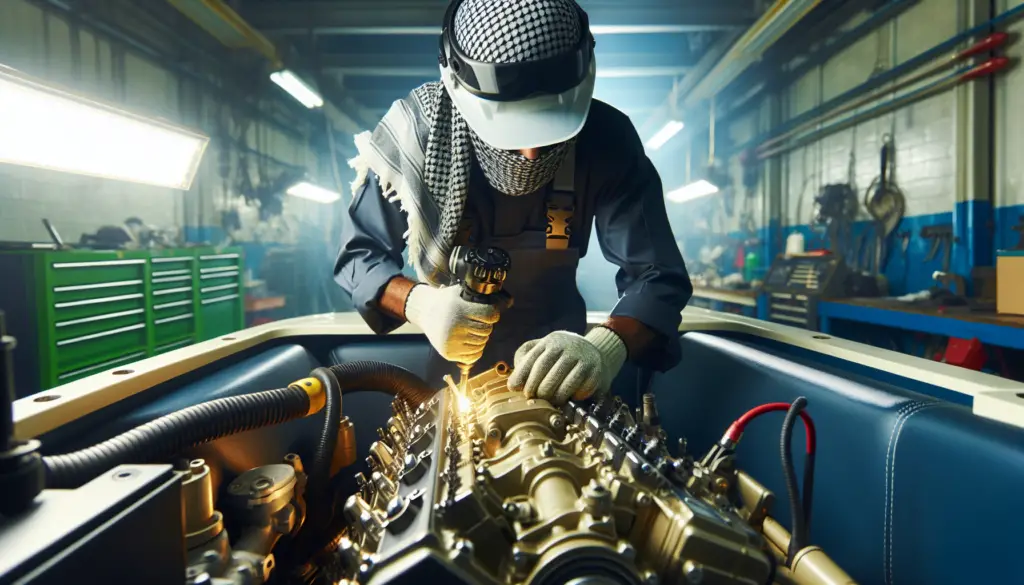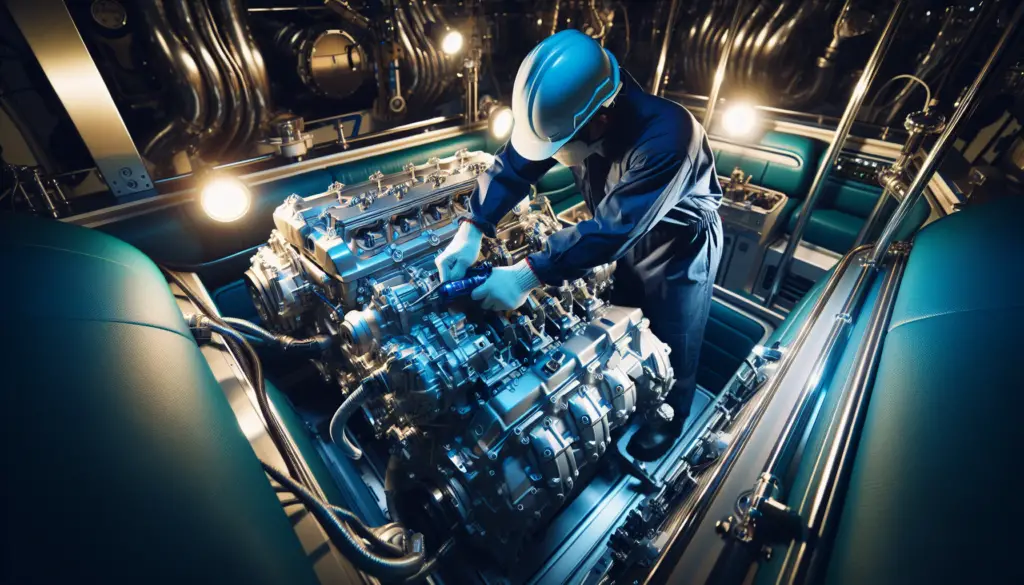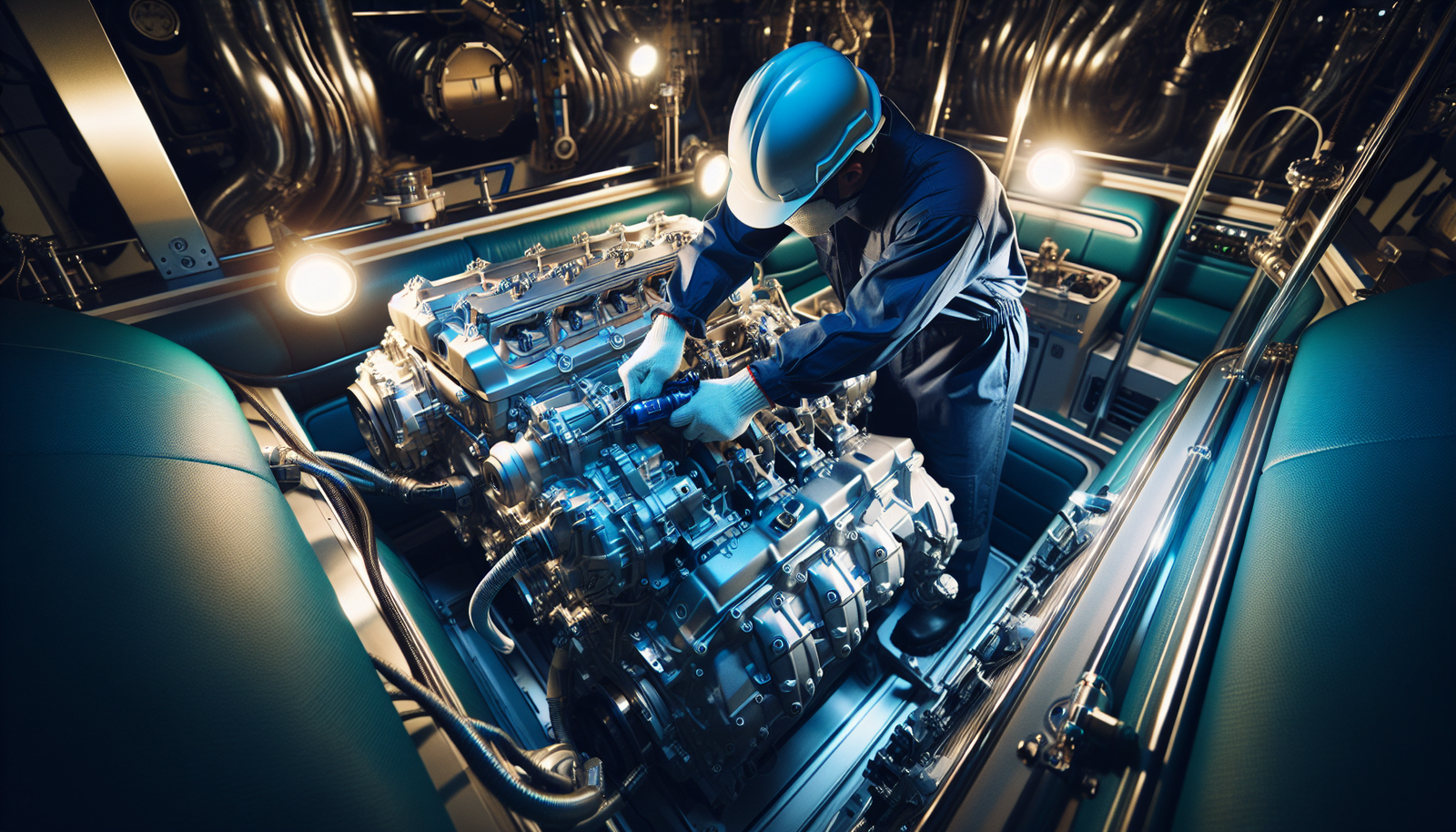You’re just about to set sail on a tranquil marine adventure. But wait, did you remember your boat engine safety checks? This Ultimate Guide to Boat Engine Safety Checks is your best companion. It’s packed with all the necessary pointers, tips, and step-by-step instructions that will ensure your boat engine is in optimal shape before you hit the azure sea. This indispensable guide is your ticket to safe, hassle-free and confident boating experiences.
Understanding the Importance of Boat Engine Safety Checks
Before you plan for a day out on the water, it is essential to make sure your boat engine is functioning optimally. Without regular and thorough safety checks, you could potentially put your boat, and most importantly, your life at risk.
Why Regular Boat Engine Safety Checks are Essential
Carrying out routine boat engine safety checks ensures your vessel remains in a worthy sea-state. It helps you maintain the good health of your boat engine, which not only prevents unexpected breakdowns while you are out at sea but also prolongs the life of your boat. Moreover, regular checks could reveal minor issues and defects that if not addressed timely, could elevate to major, costly repairs.
The Risks of Negligence Towards Boat Engine Maintenance
Negligence towards boat engine maintenance can be risky. It not only increases the risk of engine failure but also puts the safety of your crew members and passengers at stake. A well-maintained boat engine ensures a comfortable, efficient, and safe journey.
Identifying the Major Components of a Boat Engine
Understanding the structure and functionality of your boat engine is the first step in making sure it remains in good health. Let’s take a quick look at some major components.
Key Components of Internal Combustion Engines
The internal combustion engine plays a crucial role in the functioning of your boat. It features key components such as the engine block, cylinders, pistons, crankshaft, and camshaft, among others. Each component plays a unique role in ensuring smooth operation.
Understanding the Functionality of Electrical System
The electrical system in your boat comprises of batteries, circuits, switches, and outlets. They power up all the electrical appliances in your boat and also generate sparks for engine ignition.
Fuel System and its Role in Boat Engine
The fuel system, which includes the fuel tank, fuel pump, and filters, plays a crucial part in powering your boat engine. It ensures the right amount of fuel is supplied to the engine cylinders for combustion.

Pre-Departure Boat Engine Checks
Before you set sail, there are a few checks that are important to ensure your engine is ready to go.
Confirming the Availability of Essential Safety Equipment
Make sure all the necessary safety gears, including life jackets, first aid kits, and fire extinguishers, among others, are available on your boat and are easily accessible.
Checking the Engine Oil Level
Regularly checking and maintaining the right engine oil level is critical to avoid major engine problems. The engine oil acts as a lubricant that protects the engine parts from damage caused by friction.
Inspecting Fuel System for Leaks
Fuel leaks can lead to combustion, resulting in dangerous accidents on the water. Look for any signs of fuel leakage or smell before you head out and ensure the fuel system is in perfect condition.
Inspecting the Engine Cooling System
The engine cooling system plays a crucial part in maintaining the engine temperature, thus preventing overheating.
Examining the Coolant Level
Regularly checking and maintaining the coolant level is quintessential to prevent overheating. Make sure to top off the engine coolant if it’s below the minimum mark.
Checking for Visible Leaks
Inspect hoses and connections carefully for any visible leaks. A leaking cooling system can quickly result in the engine overheating.
Understanding the Consequence of Overheated Engines
An overheated engine can cause serious damages, including warped cylinder heads, damage to the head gasket, and in worst cases, total engine failure.

Checking the Propulsion System
Your propulsion system powers your boat movement. Understanding the key components of the system is essential to ensuring it is running optimally.
Importance of Propeller Inspection
Inspecting the propeller regularly ensures accretion-free, efficient operation. Look for any signs of damage, debris, or fishing line wrapped around the propeller.
Detecting Propulsion System Abnormalities
Be vigilant for any abnormal noises, vibrations, or lack of power as these could be signs of propulsion system issues.
Ensuring the Adjustability and Responsiveness of Throttle
Regular inspection of the throttle prevents jamming or lagging. Test the throttle to ensure it moves easily and the boat responds immediately.
Fuel Management Safety Checks
Proper fuel system maintenance plays a critical role in preventing accidents and ensuring efficient performance.
Examining the Fuel Tank
Check the condition of the fuel tank regularly. Look for corrosion, fuel leakage, or any other damages that could cause potential danger.
Taking Care of Fuel Filters
Pay attention to the fuel filters as dirty or clogged filters can limit fuel supply to the engine. Replace them as and when necessary.
Identifying Signs of Contaminated Fuel
Contaminated fuel can harm your engine. Regularly inspect the fuel condition and drain off any water or debris detected.
Inspecting the Electrical System
Your boat’s electrical system needs proper care and maintenance to guarantee its safe operation.
Ensuring the Functionality of Batteries
Inspect and test boat batteries regularly to ensure they hold a charge. Batteries with a low charge can leave you stranded in the water.
Checking for Damaged Wires and Connections
Look out for worn-out, frayed, or loose wires and connections. Damaged electrical wires can cause sparking and result in fire hazards.
Making Sure Electrical System is Grounded Properly
Proper grounding of the electrical system is critical to avoid electrical shocks. Regularly ensure the grounding system is intact and free of corrosion.
Bilge and Pump Safety Checks
A well-maintained bilge and pump system help in avoiding onboard hazards.
Examining the Bilge Pumps Functionality
Regularly check the bilge pumps for functionality. Defective pumps may lead to excess water buildup, which can cause the boat to sink.
Checking for Excessive Water in the Bilge
Too much water in the bilge can flood the boat. Regularly check and remove excess water from the bilge area.
Maintaining a Clean Bilge to Avoid Fire Hazards
A clean bilge reduces the risk of fire hazards onboard. Regularly clean and maintain the bilge area to prevent accumulation of oil or fuel.
Importance of Regular Boat Engine Servicing
To ensure your boat engine remains functional and efficient, regular servicing is paramount.
Why Regular Servicing Extend the Life of the Engine
Frequent servicing not only maintains the performance of your engine but also extends its life. Early detection and rectification of issues help in preventing major damages.
How Servicing Helps in Identifying Potential Failures
Regular servicing involves thorough engine checks, which help identify potential problems before they become major issues.
Safety Measures While Performing Engine Checks
Performing engine checks also comes with its own set of hazards. Be sure to follow these safety measures for your protection.
Understanding the Risks Involved in DIY Checks
While DIY checks can be beneficial, they come with risks, especially if you’re not familiar with the working of the engine. Always seek professional help when necessary.
Importance of Using Protective Gears
Always use protective gears such as gloves, safety goggles, and durable footwear during engine checks to protect yourself from potential injuries.
What to do in Case of Accidents during Engine Checks
In case of accidents during engine checks, it’s important to seek immediate medical attention. Moreover, it’s crucial to understand basic first aid procedures to handle such situations efficiently.

